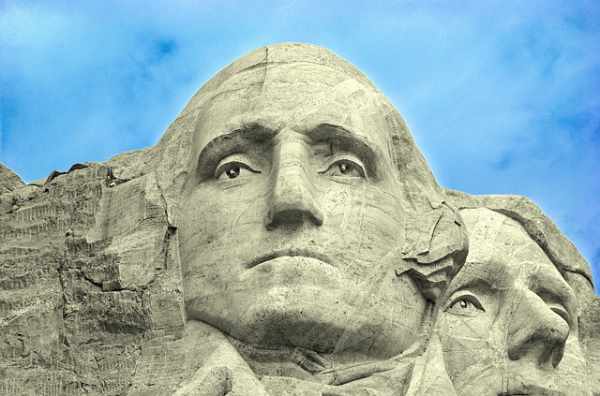
Even King George III remarked that if Washington gave up his power, “he would be the greatest man in the world.”
He retired to his plantation as one of the most famous people in the world. He was almost universally revered.
During his short-lived retirement, the Central government had become more ineffective, and Washington believed the Central government needed more power.
Washington reluctantly agreed to attend the Constitutional Convention in March of 1787.
In the spring of 1789, Washington received the news he likely knew was coming. He had been unanimously elected as the first President of the United States.
He didn’t want to appear power-hungry but wanted the new nation to succeed. He accepted.
“While I realize the arduous nature of the task which is conferred on me and feel my inability to perform it, I wish there may not be reason for regretting the choice.” He believed that he could set the nation on a steady course and then give up the power of the presidency, which he would ultimately do after two four-year terms.
As Washington left Mount Vernon for the new capital city of New York, he described his feelings as “not unlike those of a culprit who is going to the place of his execution.
He was willing to sacrifice everything for the new United States.
THE LAST DAYS OF GEORGE WASHINGTON
His final retirement at Mount Vernon was in 1797 and lasted until his death from a throat infection on December 14, 1799.
On December 12, 1799, the weather was bone-chilling cold and alternating between rain, snow, and sleet, according to Thompson, but Washington went ahead with his daily routine. He returned home a little later than usual, so his dinner guests had already arrived. Not wanting to be rude, Washington didn’t change out of his wet clothes. The next day, despite heavy snowfall and persistent cold, Washington trudged out again to assess improvements to Mount Vernon. That evening, Washington began to experience chest congestion.
Washington woke up at 2 a.m. on Dec. 14, 1799, with a sore throat. After a series of medical procedures, including the draining of nearly 40 percent of his blood, he died that evening. Draining his blood was a terrible idea, but it was a common treatment.
Three doctors tended to him, and he was bled multiple times.
At one point, a doctor gave him a drink of molasses, butter, and vinegar, which almost caused him to choke to death. They gave him an enema. Nothing worked, and he died sometime between 10 and 11 pm on the 14th. He was 67 years old.
George Washington’s last words were, “Tis well.”
He had instructed his family to “Have me decently buried, and do not let my body be put into the vault in less than three days after I am dead.” Fears of being buried too soon were common in the 18th century. He was buried four days later.
When he retired, he worked tirelessly to make his plantation productive. He received frequent visitors. According to the Mount Vernon estate, Washington received as many as 677 guests in 1798 before he died. The former president remained accessible to the American people until his death.
Washington was always willing to place the interests of the United States of America before his own and was well deserved in earning the name for posterity as “The Father of Our Country.”
Washington owned 123 slaves. There were 317 slaves on the plantation, most inherited by his wife from her first marriage to Daniel Custis.
In May 1794, in a letter to Tobias Lear, Washington expressed that he wanted to liberate his enslaved people, referring to his ownership of people as “repugnantly to his own feelings.”
“He knew that the values that he had been fighting for as a revolutionary were incompatible with slavery,” Ellis says. “He also knew that his own legacy would be affected by the position he took on that issue.”
He wanted his slaves freed upon his wife’s death. Considering his wishes, Martha Washington freed them a year after his death. A Revolutionary War veteran, William Lee was immediately granted freedom upon Washington’s death.
Following Washington’s death, the Sixth Congress commissioned a eulogy in which the nation’s founding father was remembered as “First in war, first in peace, and first in the hearts of his countrymen.”




One tough man.
Self-less patriots are powerful leaders, but they are few and far in-between. The Democrat Party IS NOT the party of George Washington! Today it is full of selfish treasonous people, may of who are criminals. History of the Democratic Party (United States)From Wikipedia, the free encyclopedia Founders Andrew Jackson Martin Van Buren Founded January 8, 1828 The Democratic Party is… Read more »